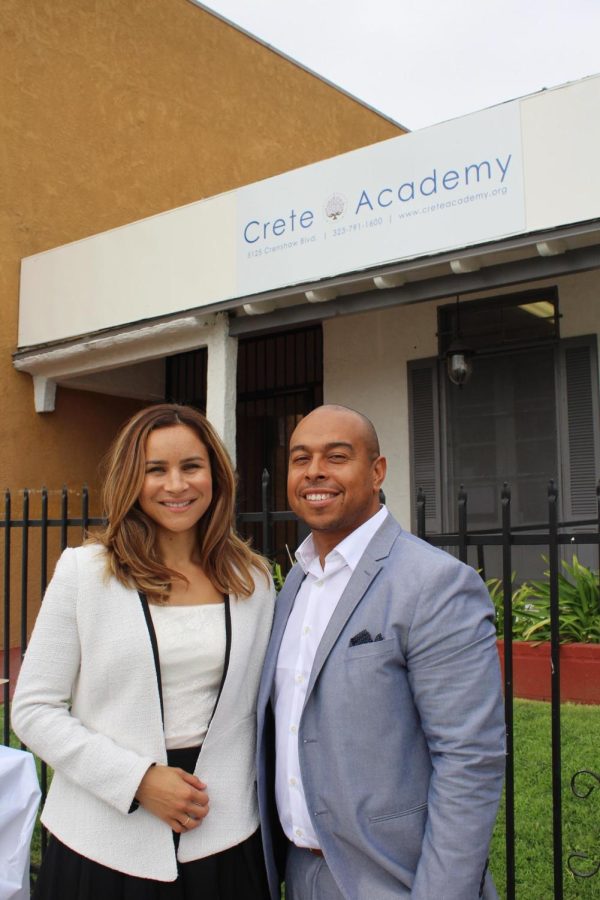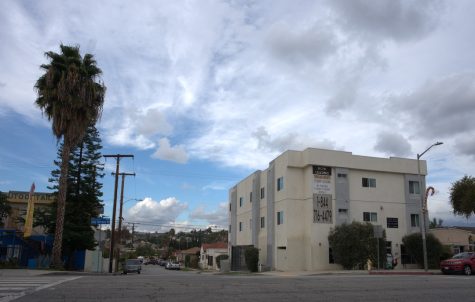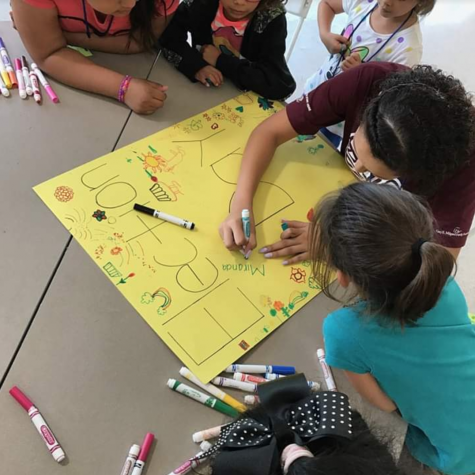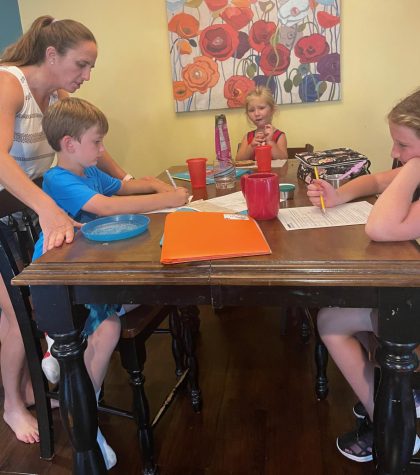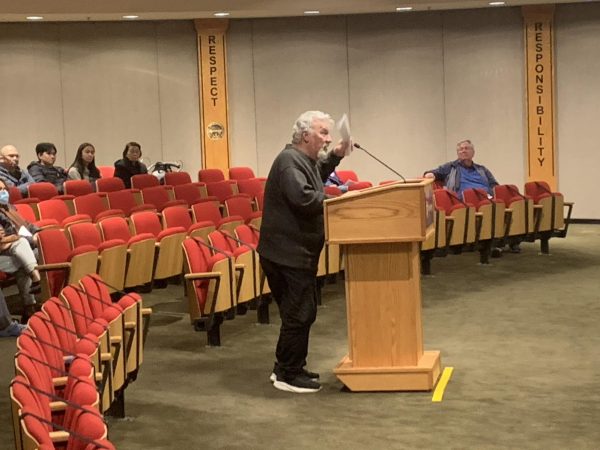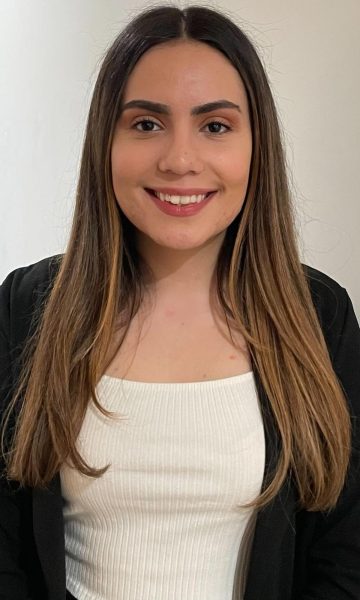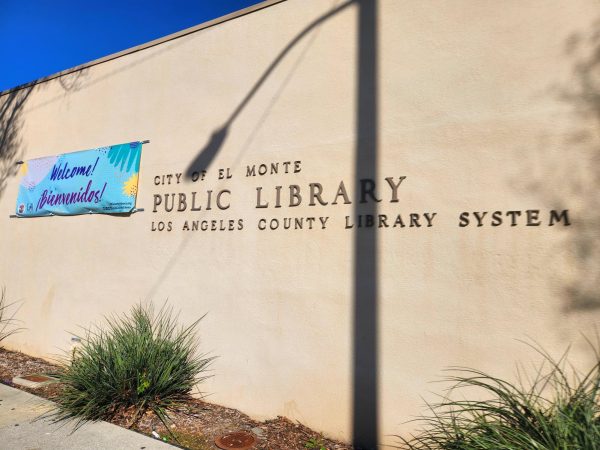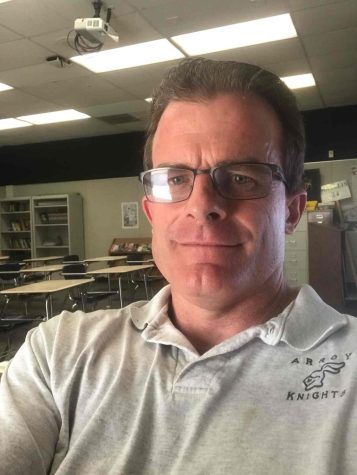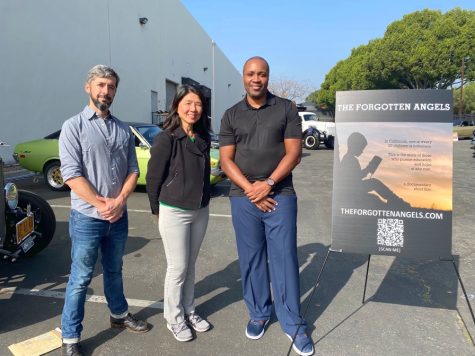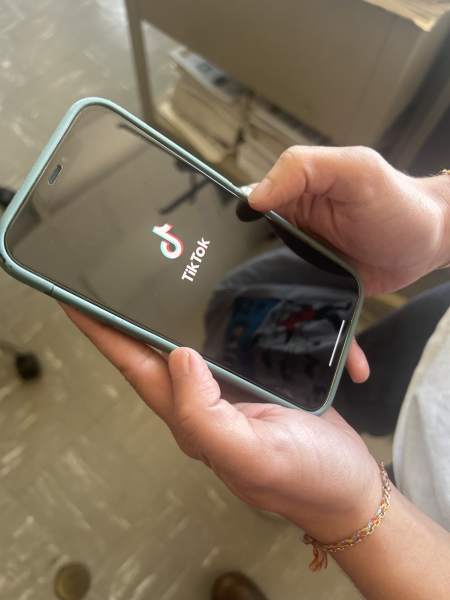The Mitchells vs. the education machine
Couple’s South L.A. school, Crete Academy, aims to meet basic and ‘whole’ needs first
Courtesy of Hattie Mitchell and Brett Mitchell.
Founders of Crete Academy stand outside the school. Left: Hattie Mitchell, Right: Brett Mitchell. Photo by Mitchel Family.
When Hattie Mitchell was a freshman at Cal State LA, she volunteered on Skid Row and saw a girl crawling on the sidewalk.
That was the moment she decided to be a teacher, according to her husband, Brett Mitchell.
She also had an idea: What if a school could first tackle the basic human needs of children instead of focusing on traditional educational priorities: high test scores, enrolling more students, and churning out more graduates?
So Brett Mitchell, a lawyer, worked with her to make the dream a reality.
Crete Academy, at 6103 Crenshaw Boulevard in South Central Los Angeles, serves students in the community with insecure housing and provides them and their families with resources.
“It doesn’t necessarily have to be financial,” Brett Mitchell said. Their philosophy is: “If you have a minute, give a minute. If you have $1, give $1. Any wisdom, please share it with us.”
He spoke to UT Community News recently about the school.
What encouraged you to create Crete Academy and place it in South Central L.A.?
“I grew up in View Park, which is a suburb of South Central” but attended school at Wunderland Avenue Elementary in Hollywood Hills.
“It was an amazing school. But I got sent there for the rest of my elementary time. And it always bothered me because I had to wake up really early. The bus ride was like an hour and a half. [When] I was waking up, it was still dark…and I always wondered, ‘Why can’t I just go to school here?’”
Fast forward to March 2016, Hattie asked me to quit my job as a lawyer to help her start Crete Academy.
A partner at the firm encouraged it, saying, “‘Brett, we can get another attorney next week…But it sounds like your wife has a beautiful idea. And there’s not a lot of young men going into the city to do that kind of work. So…you’d have our full blessing. If it doesn’t work out and you need a job, just give us a call. We’d love [to have] you over here.’”
As for the location, “We wanted to be where the work was needed the most.”
What are Crete Academy’s goals?
Our goals are to serve students in the immediate neighborhood with needs the school can help meet.
The school provides help with housing insecurity, food insecurity, transportation, and medical, dental, hearing, and vision screenings, including providing free glasses to students who need them. It offers counseling year-round for students and provides resources for families such as parenting classes and job training, and assistance accessing government programs.
“Students that have the highest grades that have the most impressive resumes. They’re able to do that because they come from, two-parent households. Their parents are educated, and they live in safe communities with access to good, nutritious food. And that’s just not the case for a lot of our families.”
How are you able to provide resources?
“We cannot do this alone…So we have partnerships with our alumni programs.”
UCLA and Cal State LA provide interns and USC’s dentistry school provides people to do dental screenings.
“So we definitely rely on the local colleges and universities, especially the one that we went to — they make a lot of this possible. We have some amazing community partners,” including the Los Angeles Lakers, Interscope Records, the Brotherhood Crusade, and the Los Angeles Dodgers.
“We really rely on the support of the community.”
How many students attend Crete and how many face home insecurity?
“We accept everyone. Any family that wants to be a part of the Crete family is more than welcome to join.”
“So currently, we have about 350 students [up from 127 when it first opened]. And, you know, somewhere between 50 and 60 of the students will be in the home-insecure demographic. But it is a true representation of South L.A.”
Will your academy ever expand to become a K-12 school?
“Our focus is on getting to the youngest students, providing them support as early as possible to make sure we get them on track and we avoid some of the things that can happen later. So primarily, we will always serve the elementary age. We do have plans to expand to middle school but not to high school.”
“There is a quote by Frederick Douglass where he says it’s much easier to raise a child than to fix a broken man.”
Why is it important to talk about college at an early age?
“Unfortunately, a lot of our families haven’t ever been to a college campus. It’s a foreign concept.”
Building expectations early is key. Many students that come from South Central L.A. are likely to be first-generation students. Crete Academy employees do university student tours, they show students what it looks like to be in college, explain to students what it takes, and start to prepare them early.
What was your biggest obstacle when starting Crete Academy?
“Everything’s on you. We started a school with no funding from the state at first. So we got creative. We sold our house. So, we just made some sacrifices to ensure that we’d be able to at least weather that storm, but that first year was rough…Because of all the services we provide to the kids, it costs a lot. So Dr. Mitchell and I make sure we fundraise. We develop partnerships. What has been the challenge is making sure we have all the resources needed, that our students deserve.”

Leslie Magaña Arias is a reporter for the UT and Editor in Chief of the UT Community Magazine. She is a vegan and a human rights activist who enjoys doing...

